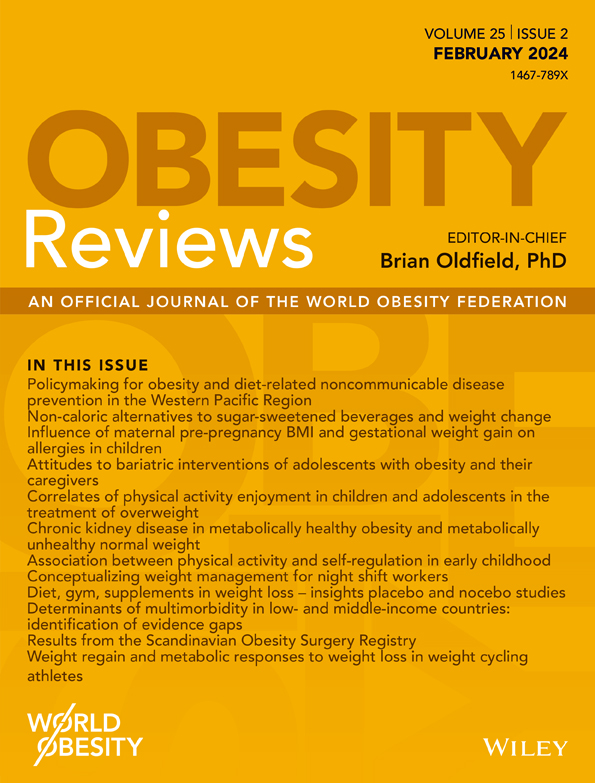Determinants of adherence to obesity medication: A narrative review
Abstract
The increasing prevalence of obesity, complex nature of this chronic disease, and risks of developing obesity-related comorbidities outline the need for sustainable and effective management for people living with obesity. In addition to behavioral interventions, obesity medications (OMs) are increasingly considered an integral part of management of people living with obesity. OM adherence is essential to achieve the health benefits of these medications. Adherence to medications, defined as the process by which patients take their medications as prescribed, is determined by a range of factors and can be broken down into phases: initiation, implementation, and persistence (the persistence phase includes discontinuation/stopping treatment). Obesity-specific challenges exist to optimize OM adherence, which may explain varying OM adherence compared with medication for other chronic diseases (diabetes, hypertension, dyslipidemia, and osteoporosis). However, lessons can be learned from other chronic diseases to improve OM adherence, for example from type 2 diabetes and hypertension. This review aims to provide practical guidance for identifying OM- and obesity-specific determinants of adherence and discusses adherence determinants per adherence phase and obesity management phase (weight gain, weight loss, and weight stabilization/regain). This practical guidance will assist with developing obesity-specific interventions to improve OM adherence.
Practitioner Points
- OMs are increasingly considered as an integral part of obesity management; however, like with all chronic disease medications, low adherence to these medications is often observed, impacting their therapeutic effect.
- Adherence to obesity medication can be affected at any phase of obesity management (weight gain, weight loss, and weight stabilization/regain) so considering the disease phase can help identify potential reasons for low adherence.
- Future initiatives to improve adherence to obesity medication should be a key focus of discussions at each opportunity with healthcare professionals, including thorough evaluation and targeted education, all in a supportive and stigma-free manner.


 求助内容:
求助内容: 应助结果提醒方式:
应助结果提醒方式:


